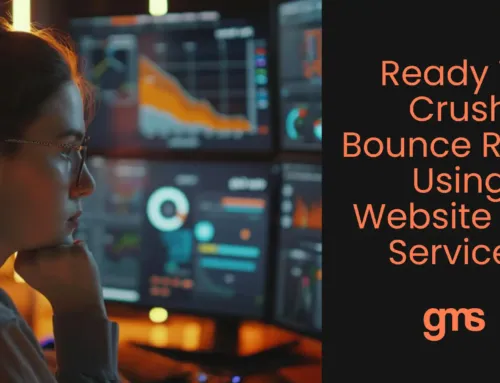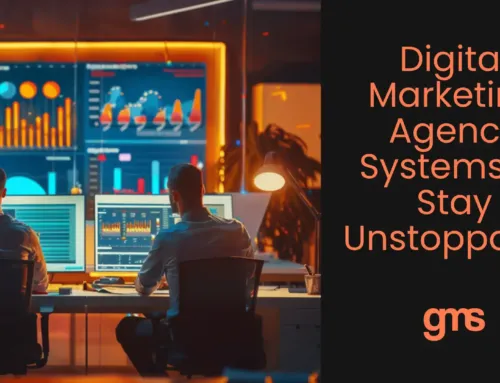Embracing the Creator Economy
The creator economy is reshaping how we work, signifying a notable shift in the global job market. As technology advances, new opportunities emerge, making content creation a viable and profitable career path. Traditional jobs might become obsolete, but the creator economy is poised for significant growth. Unlike the Industrial Age, which introduced many jobs we know today, the Information Age is creating roles centred around digital content. This evolution in technology not only changes our working methods but also boosts profitability across various sectors. Consequently, the creator economy is expected to grow from $250 billion to $480 billion within the next five years.
Like what you are reading? Follow GMS Media on LinkedIn.
Defining the Creator Economy
The creator economy is an ecosystem where independent creators earn money from their digital content. It began with platforms like YouTube, which allowed users to share videos globally. As these platforms expanded, they introduced monetisation options like ads and sponsorships, enabling creators to generate income. Subsequently, platforms like TikTok and Instagram emerged, offering new ways for creators to monetise through ads, sponsorships, and direct audience support. The rise of high-speed internet and mobile devices has further fueled the creator economy, making it easier for individuals to produce and consume digital content.
This economic model empowers creators to transform their passions into profitable ventures, leveraging their skills to build personal brands and businesses. As technology continues to advance, the creator economy is set to offer even more opportunities for success. This shift allows creators to address real-world issues based on their experiences, unlike traditional businesses that may struggle with problems they don’t fully understand.
Need help communicating and relating with your audience? Contact GMS today.
The Appeal of Becoming a Creator
Content creation is an attractive career path for many, offering a promising future. Employers are increasingly hiring creators, and creators learn from each other, fostering a self-sufficient community that solves real-world problems through shared experiences. In the digital age, one’s personal brand serves as a public resume. Embracing the creator economy involves utilising this digital presence to craft a meaningful and impactful career.
Imagine this scenario: many teenagers today will soon face a critical decision. Should they pursue a conventional $40,000-a-year job or earn the same amount by creating content around their passions, whether it’s sports, fashion, or wine? Many will opt for the latter, driven by their enthusiasm and the freedom that comes with being a creator. Despite the increasing number of influencers, we are still in the early stages of this evolution, with the creator economy’s influence set to grow stronger over time.
The Innate Drive for Content Creation
Creating content fulfils an inherent human drive. People naturally seek to create and share their knowledge. Traditional education and jobs often suppress this drive, but content creation reignites it. Historically, technology has helped eliminate tedious tasks, allowing for more creative and fulfilling pursuits. Content serves as structured information for learning and growth, while creation involves bringing new ideas to life. Humans are natural problem solvers and builders.
Engaging in content creation taps into these fundamental human traits. Those who do not create often become mere cogs in the societal machine. The creator economy provides a platform for individuals to express their creativity and share their unique perspectives. This opportunity to innovate and share knowledge drives many to pursue content creation as a career. It’s not just about making money; it’s about fulfilling a deep-seated human need to create and connect.
Need help communicating and relating with your audience? Contact GMS today.
Creating Relatable and Impactful Content
To attract an audience, content must be relatable, impactful, and entertaining. Focus on topics that people find interesting and relevant. Your content should be broad enough to appeal to a large audience but focused enough to establish your expertise. This balance helps build authority in your niche. Writing impactful content involves taking a clear stance on issues and expressing your beliefs passionately. People remember bold ideas that challenge the status quo. Strive to be mostly liked but don’t shy away from being controversial. This polarity keeps your audience engaged.
Offering unique perspectives is essential for engaging your audience. Instead of reiterating common ideas, provide fresh insights. Personal experiences, thorough research, and self-reflection are excellent sources for new viewpoints. People seek new ways of thinking, and your content should meet that need. Effective writing structures are also crucial for readability. On social media, use short paragraphs, line breaks, and lists to capture attention. Study high-performing posts and emulate their structure to ensure your content is engaging and accessible.
Effort and Understanding the Algorithm
Creators need to understand that algorithms are influenced by human psychology. Content should have a clear purpose, address pressing problems, and offer solutions. Engaging with larger accounts, networking with other creators, and using paid promotions can significantly boost visibility. A successful product is also vital for any content creator. Your product should be something you genuinely use and recommend. Authenticity resonates with audiences and simplifies marketing. Test and refine your product ideas through your content to ensure they meet real needs.
Understanding platform algorithms is critical for creators. These algorithms determine which content gets visibility. By tailoring content to meet algorithm criteria, creators can increase their reach and engagement. This includes using appropriate keywords, engaging with followers, and posting at optimal times. Success in the creator economy requires both creativity and strategy. It’s not enough to create great content; you also need to know how to get that content seen by as many people as possible.
Need help with digital marketing? Contact GMS today.
The Scale of the Creator Economy
The creator economy is vast and rapidly expanding. Currently valued at around $250 billion, it is projected to reach $480 billion within the next five years. This growth is driven by the increasing number of platforms that support content creators and the rising demand for digital content. More people are turning to content creation as a viable career path, contributing to the economy’s expansion. Companies are also recognising the value of collaborating with creators for marketing and branding purposes. This dynamic creates a robust and continually expanding market, benefiting both creators and businesses.
The creator economy offers diverse opportunities for creators to monetise their content. From ad revenue and sponsorships to merchandise and subscriptions, creators have multiple revenue streams at their disposal. This financial potential is attracting more individuals to the creator economy. As more people enter this space, the competition will increase, but so will the opportunities for innovation and collaboration. The creator economy is a dynamic and evolving landscape with vast potential for those willing to put in the effort.
Future Trends and Technologies in the Creator Economy
The future of the creator economy looks bright and is expected to continue growing. Technological advancements, such as augmented reality and virtual reality, will provide new ways for creators to engage with their audiences. Additionally, blockchain technology and NFTs (non-fungible tokens) are emerging as new revenue streams for digital creators. As more platforms emerge and existing ones evolve, creators will have even more tools and opportunities to monetise their content. The creator economy will also become more inclusive, allowing creators from diverse backgrounds to find their niche and succeed. This growth will further solidify content creation as a mainstream career path.
Future trends in the creator economy will also include increased integration with other digital industries. For example, the rise of e-commerce will create new opportunities for creators to sell products directly to their audiences. Similarly, advancements in artificial intelligence and machine learning will provide creators with new tools for content creation and audience engagement. The creator economy is not just a passing trend; it’s a fundamental shift in how we work and create value in the digital age.
Challenges in the Creator Economy
Despite its growth, the creator economy faces several challenges. One major issue is the volatility of income, as creators often rely on ad revenue and sponsorships, which can fluctuate. This unpredictability makes financial stability difficult for many creators. Additionally, the competition is fierce, with millions of creators vying for attention on various platforms. Another challenge is maintaining a work-life balance. Content creation can be demanding, requiring constant engagement and production of new material. This can lead to burnout if not managed properly. Furthermore, the evolving nature of platform algorithms can impact visibility and income, adding another layer of uncertainty for creators.
Creators must also navigate the complexities of intellectual property and copyright issues. With so much content being produced and shared, it can be difficult to protect original work and ensure proper credit is given. Additionally, the pressure to constantly produce new and engaging content can take a toll on mental health. To succeed in the creator economy, creators need to develop strategies for managing these challenges. This includes diversifying income streams, building strong support networks, and staying adaptable to changes in the digital landscape.
The Future of Work and the World Economy in 2050
By 2050, the world economy will likely be heavily influenced by digital innovation and the creator economy. Automation and artificial intelligence will transform traditional industries, making many current jobs obsolete. The rise of remote work and gig economies will redefine employment, with more individuals pursuing independent and freelance opportunities. The creator economy will play a significant role in this new landscape, offering diverse income streams and entrepreneurial opportunities. As global connectivity increases, creators will reach wider audiences, further integrating digital content into everyday life. This shift will lead to a more decentralised and flexible economic structure, driven by innovation and creativity.
The creator economy will also drive significant cultural and social changes. As more people create and share content, we will see new forms of expression and community building. This will lead to greater diversity and inclusion in media and entertainment, as creators from different backgrounds and perspectives find their voices. The future of work will be defined by flexibility, creativity, and the ability to adapt to new technologies and opportunities.
The Role of Micro-Influencers and Niche Creators
Micro-influencers and niche creators are gaining traction. As they grow, it’s vital for them to focus on what initially brought them success. Consistency and authenticity are key. Additionally, expanding their presence across multiple platforms can help sustain their growth. Many creators who focused solely on Instagram missed out on opportunities by not adopting TikTok early on. Diversifying their content across platforms like LinkedIn, Twitter, and Snapchat can significantly enhance their reach.
Micro-influencers and niche creators offer unique advantages in the creator economy. They often have highly engaged audiences and can build strong communities around their content. This makes them valuable partners for brands looking to reach specific demographics. As the creator economy evolves, micro-influencers and niche creators will play an increasingly important role in shaping the digital landscape. Their ability to connect with audiences on a personal level and offer specialised knowledge and insights will drive their continued success.
The Creator Economy Across Generations
The creator economy is particularly significant for Gen Z, who are digital natives and highly engaged with online content. Gen Z creators are leveraging platforms like TikTok and YouTube to build personal brands and monetise their passions. This generation values authenticity and creativity, making them natural fits for the creator economy. Gen Z’s approach to content creation is reshaping the landscape. They are more likely to use emerging technologies and innovative content formats, setting trends and influencing older generations. As they continue to engage with and expand the creator economy, Gen Z creators will drive future growth and evolution, making it an integral part of the broader economic framework.
The creator economy holds great appeal for Millennials, who have witnessed the rise of digital platforms firsthand. Many Millennials have transitioned from traditional jobs to content creation, finding new ways to leverage their skills and passions. This generation values flexibility and work-life balance, which the creator economy provides. Millennials are adept at using social media and other digital tools to build personal brands. They have been at the forefront of the blogging, vlogging, and influencer trends. As the creator economy grows, Millennials will continue to play a significant role in shaping its development and direction.
Gen X has also found a place within the creator economy, although their approach may differ from that of younger generations. Many Gen X creators have used their professional experience and expertise to create valuable content. They often focus on niche markets and offer in-depth knowledge and insights. Gen X creators may use platforms like LinkedIn and YouTube to share their expertise. Their content often appeals to a mature audience looking for quality and reliability. As the creator economy evolves, Gen X will continue to contribute their unique perspectives and experiences, enriching the overall landscape.
Need help with digital marketing? Contact GMS today.
Opportunities and Strategies for the Future
In today’s digital landscape, the creator economy is expanding at an unprecedented rate. With more creators and influencers emerging daily, one might wonder how this growth can be sustained. Over the past decade, it has become clear that the long tail of influencers and creators is much longer than many realise. As more marketing money shifts from traditional outlets like television and outdoor advertising to individual creators, we see a significant transformation in the industry. Each year brings new trends, from NFTs to the metaverse and now AI. Entrepreneurs and investors often jump on the bandwagon, driven by the fear of missing out. The key to capitalising on these trends is not to rush but to make informed decisions.
For aspiring content creators, the ultimate advice is to focus on what you genuinely know or are passionate about. Authenticity is the foundation of great content. Whether you’re an expert in a particular field or have a deep passion for a subject, let that drive your content. Too many creators aim for fame, money, or trends, but true success lies in talent and passion. Additionally, content creation requires a significant amount of skill. Understanding the nuances of platform algorithms, the importance of thumbnails, and the timing of posts are all critical elements. Many people underestimate the expertise required to excel in this field.
The creator economy is here to stay and will continue to grow, offering diverse opportunities for those willing to embrace it. The dynamic and evolving landscape of content creation presents endless possibilities for innovation and success. Whether you’re a creator, platform developer, or tool builder, the future of the creator economy holds great promise. By understanding and leveraging the unique aspects of this economy, individuals and businesses can thrive in the digital age.
About The Author
GMS Media Group is dedicated to helping businesses navigate the creator economy. With expertise in digital marketing and a commitment to driving significant ROI, GMS Media Group offers tailored strategies to amplify your online presence and achieve substantial growth. Visit GMS Media Group to learn more about how we can help you succeed in the creator economy.




